U.S. Ambassador Manuel P. Micaller: «Over the Past Five Years, Tajikistan Has Demonstrated Resilience and Determination In Its Socio-Economic Development Efforts»
Read also
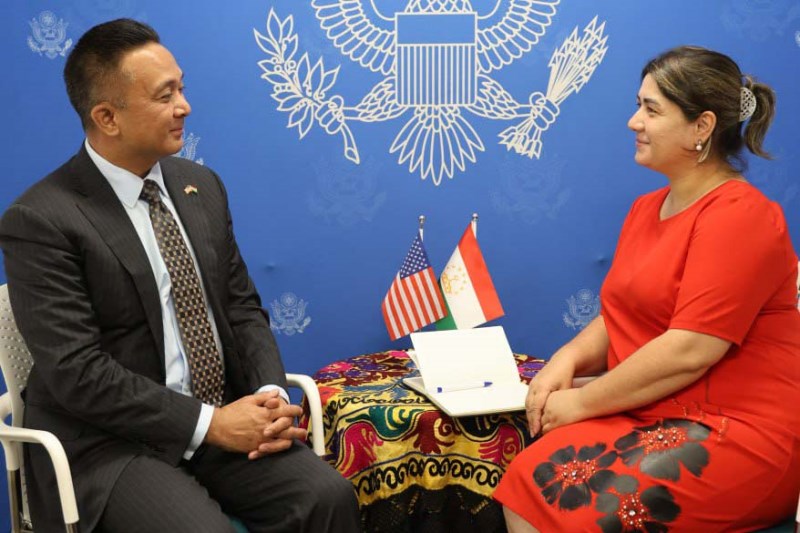
DUSHANBE, 06.07.2024 (NIAT Khovar) – Cooperation and deep bilateral relations between Tajikistan and the United States of America have been going on for more than 30 years. The United States was one of the first countries that recognized Tajikistan’s independence and established an embassy in Dushanbe.
Later, friendly relations between the countries developed in all spheres.
On the eve of the State Independence Day of Tajikistan, Kovar’s correspondent had an interview with the U.S. Ambassador to Tajikistan Manuel P. Micaller.
Khovar: How have you adapted to life in Tajikistan? What aspects of the local culture and life have you enjoyed most?
Manuel P. Micaller: This is my third time serving in Tajikistan, and I think of it as my second home. I had the great honor to first come to your beautiful country in 2004, and then I served here previously from 2010 through 2013. I have traveled across the country, from Sughd to GBAO, and have marveled at Tajikistan’s nature and landscapes, the warm hospitality of the people of Tajikistan, and the cultural diversity of the country.
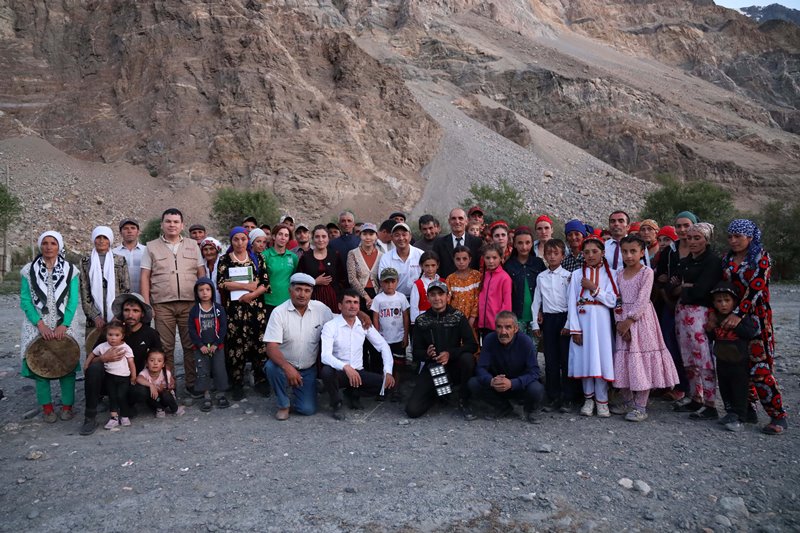
I also continue to study the Tajik language and read the great poets of Tajikistan, from Rudaki to Ayni.
Khovar: How would you assess the current state of relations between the United States and Tajikistan? What key achievements have you highlighted this year?
Manuel P. Micaller: Our bilateral relationship goes back more than 30 years and is deep and broad. One of the reasons I returned was to continue to build on our long-standing partnership, which has significantly improved the lives of the people of Tajikistan. We have worked hand in hand with Tajik partners in education, agriculture, public health, economic investment, border security, disaster response, and numerous other fields.
Over the course of my 20 years visiting and working in your country, I have seen remarkable changes. I have witnessed improvements in infrastructure, including improved transportation infrastructure on your main highways, particularly to Khujand. I am impressed with remarkable progress in the Roghun hydropower plant and dam project, and I want to commend the Mayor of Dushanbe for the remarkable developments in this beautiful capital, which has changed dramatically since my first visit here.
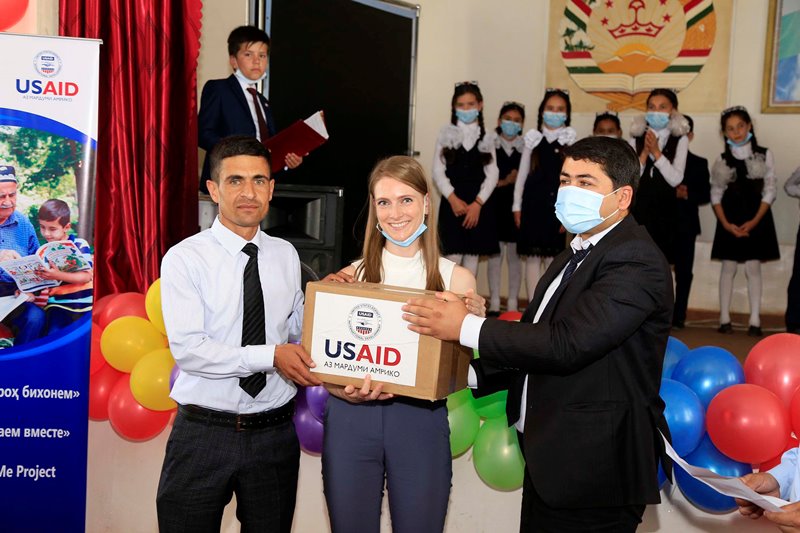
In terms of the progress in our own relationship, I am very proud of the fact that the United States was among the first of your friends and partners to recognize your independence and establish an embassy here in Dushanbe. Over our 32-year diplomatic relationship, the United States has contributed in a variety of sectors, from health care to education, agriculture and economic development, and on security and combating our shared external threats. Combining our multilateral and bilateral support, our investments make the United States the largest single donor country to Tajikistan.
Khovar: What key priorities do you see in developing cooperation between our countries?
Manuel P. Micaller: Supporting Tajikistan’s sovereignty, independence, and territorial integrity, and improving the conditions and opportunities for the Tajik people are our top shared priorities. We know that we are stronger and more secure when we work together on economic and commercial development, education, and healthcare.
The United States works closely with the government of Tajikistan to achieve its stated goal of security and stability here, by building up civil society, addressing the root causes of extremism, and finding that balance that we all struggle with, including in the United States. Namely, balancing between legitimate security needs and enabling a robust civil society and media, protecting human rights and ensuring that we are meeting our domestic and international commitments. That is an ongoing conversation we have with the government of Tajikistan as friends and partners.
These priorities are not separate and distinct. The role of civil society and media is critical to our shared goal of security, development, and prosperity here.
Khovar: What U.S. projects and programs are being implemented in Tajikistan to support education and healthcare?
Manuel P. Micaller: I would like to address our work in healthcare first. We have worked closely with the government of Tajikistan to combat tuberculosis, COVID-19, and HIV/AIDS, and improve conditions for child and maternal health. With the assistance of the U.S. Agency for International Development (USAID), the Ministry of Health and Social Protection of the Population has rolled out new treatment regimens for Multi-Drug Resistant-TB in 60% of districts, reducing treatment time from 24 to just nine months. During the COVID-19 pandemic, the U.S. government donated 1.5 million doses of the Moderna vaccine, and approximately three million doses of the Pfizer vaccine. USAID assists 70,000 pregnant women and about 260,000 children under the age of five years-old annually, through the Maternal and Child Health and Nutrition programs.
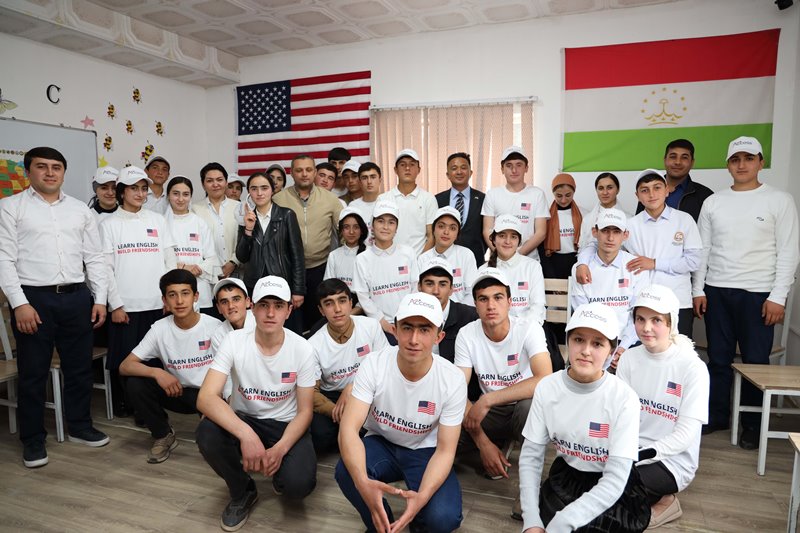
The U.S. Centers for Disease Control and Prevention (CDC) has contributed more than $18 million to strengthen Tajikistan’s public health infrastructure. With its support, Tajikistan is effectively addressing the HIV epidemic working toward the global “95-95-95” goals, where 95% of people living with HIV know their status, 95% of those that know their status are receiving life-saving anti-retroviral therapy (ART), and 95% of those on ART are achieving viral suppression.
The CDC has provided technical and financial support for the development of the Public Health Emergency Operations Center and has trained Ministry of Health and Social Protection of the Population field staff on responding to various outbreaks.
Khovar: What measures and assistance do the United States provide to strengthen English language education in Tajikistan?
Manuel P. Micaller: The English language has become the language of commerce, of the internet, of travel and tourism, and of global media. By knowing English, discerning students and readers, as well as journalists and editors, can access news, objective and alternative information sources, and data that are otherwise unavailable. Therefore, it is important for the people of Tajikistan to have access to English language learning. And the United States is a ready partner, providing resources and programs in English for students, young adults, and professionals of all ages. I understand you have participated in our English for Journalists program, which is just one of our many exchange programs which has strengthened U.S.-Tajik ties.
The United States also invests in continuing education for Tajik professionals, providing English language programs for journalists and government employees, supporting President Rahmon’s call for a multi-lingual work force. Through our regional C5+ONE (Opening Networks through English) program, young professionals working on critical issues across Central Asia are learning English. Together, we are building a skilled workforce that increases Tajikistan’s and the region’s competitiveness in global markets, promoting economic strength, and supporting bilateral trade.
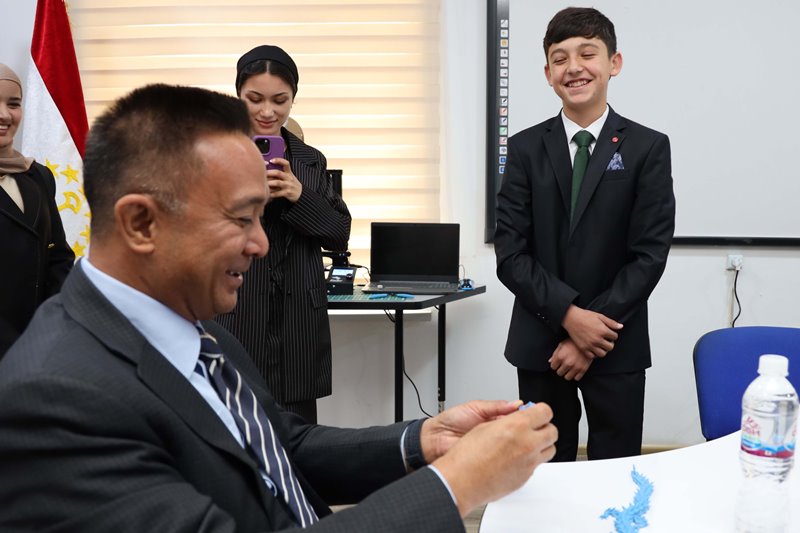
This year, the U.S. Embassy provided the Ministry of Education and Science with 242,000 English language textbooks—enough for every student in 10th and 11th grades. These textbooks will be used by students and teachers in Tajik public schools this academic year and include modern, student-centric teaching practices and teacher guides so that English language learning will be engaging and effective for students. This year, USAID provided four million books and learning cards to improve students’ reading, Tajik language, math, and social/emotional skills. A total of 3,115 schools (covering about 80% of all schools in Tajikistan) received the materials, which will educate nearly 900,000 students in grades 1-4.
The U.S. Embassy also supports two English Resource Centers (ERCs) at Dushanbe State Pedagogical University and Bokhtar State University, working with teachers and future teachers to improve their teaching of English. Our eight American Spaces host classes and clubs that help improve English, as well as teach hard skills to young people, including computer coding and robotics.
Khovar: Is there a plan to increase the number of scholarships and exchange programs for Tajik students in the United States?
Manuel P. Micaller: One of my goals as ambassador is to expand opportunities for exchanges, both in Tajikistan and in the United States. This includes bringing more Americans here to teach English, as English language learning and academic and professional exchange programs open doors for professional and personal growth. Educational exchanges and English language skills build bridges between us and enhance the capacity of Tajik youth and professionals in a variety of fields. Your readers may not be aware of the variety of exchange programs we offer to students and professionals annually. For students, we have the Future Leaders Exchange Program (FLEX), the TechGirls program, UGRAD, and the Study of U.S. Institutes (SUSI). We also have a range of exchange programs for professionals, such as the Humphrey Fellowship and the Fulbright programs. There is a complete list of these programs, which generally have annual deadlines, on the embassy’s website.
Khovar: How do you see future cooperation in the field of security?
Manuel P. Micaller: The U.S. government has provided assistance to Tajikistan since 1992 across a wide range of sectors. We will continue providing assistance to secure Tajikistan’s borders, counter external terrorist threats, advance economic and social development, and provide greater opportunities for the Tajik people.
The United States is committed to engaging the Tajik government and citizens to develop a strong, sovereign, and independent nation that can defend its borders and maintain stability while balancing religious, economic, and geopolitical considerations. For the past 20 years, we have built a strong and continuing partnership between Tajikistan and the Virginia National Guard. This will continue to provide medical, communications, tactical, and engineering subject matter expert exchanges and engagements requested by the Tajik government.
Khovar: What are the specifics of U.S. support for entrepreneurship and its development and its programs in Tajikistan?
Manuel P. Micaller: The United States remains committed to deepening its private-sector investment in Tajikistan’s economy by highlighting the opportunities for U.S. businesses here and working closely with our Tajik partners to improve the investment climate to realize Tajikistan’s great potential.
This past June, we welcomed to Tajikistan the largest U.S. business delegation in history, under the U.S.-Tajikistan Business Council. During their visit, over thirty representatives of U.S. medical, financial, mining equipment, franchising services, and digitalization firms, among others, met with leading Tajik businesses and government officials to identify opportunities, create partnerships, and increase trade and investment between the United States and Tajikistan.
A U.S. priority and value that I would like to talk about is the participation of women in the economy. As half the population, women are the key to a prosperous society. Through USAID, the United States trained more than 4,500 Tajik women farmers and entrepreneurs last year, while women interested in home-based businesses have benefitted from training programs offered at our American Spaces. We will continue to look for ways to support women as entrepreneurs and businesspeople.
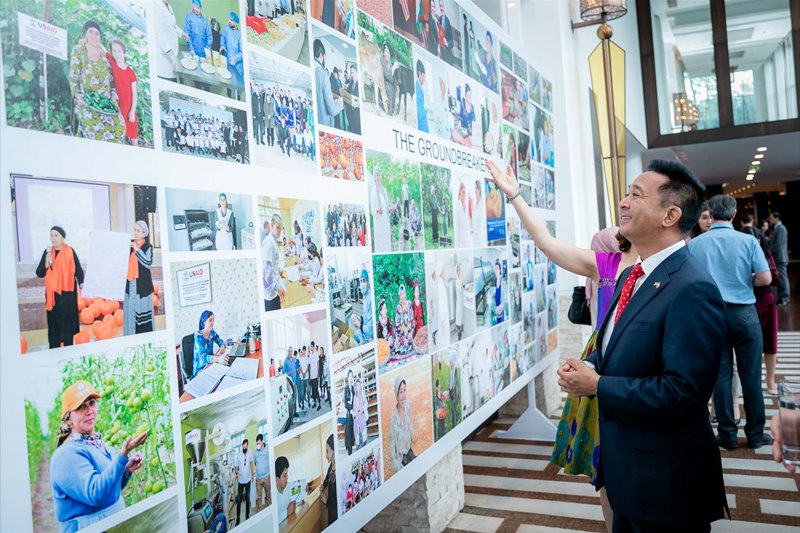
The U.S. Embassy will continue to work with a wide range of public and private sector partners to strengthen economic and trade relationships between the United States and Tajikistan.
Khovar: What measures are being taken to attract American investment to Tajikistan? Which sectors of the Tajik economy are of most interest to American investors?
Manuel P. Micaller: Investors in the United States have flourished in an open and transparent business climate that allows for independent decision-making. Through our technical assistance to the National Bank of Tajikistan and the Ministry of Finance, we are helping Tajikistan’s financial sector align itself to international business standards and best practices. American investors and American companies seek opportunities in growth markets, and improvements in the financial sector will make them more willing to look at the great potential of Tajikistan’s market.
We continue to advocate for Tajikistan’s involvement in the Trans-Caspian Trade Route, which would connect Central Asia to the Caucasus and European markets. Through the C5+1 diplomatic platform that brings together the United States and our five Central Asian partners, we hope to promote Tajikistan’s businesses to more closely cooperate with these partners and access global markets.
This country has a very strong foundation for growth. You have beautiful nature that could attract more growth in tourism. You have great natural resources that will support the future global economy. And you have excellent human resources and a large youth population. These are key elements for economic success. But we need to continue to work together to take the necessary steps to improve the investment climate by upgrading rules, regulations, and legislation in general.
Khovar: What successful examples of cooperation between American and Tajik companies can you cite?
Manuel P. Micaller: I am consistently impressed with Tajikistan’s agricultural products. Your fruits and vegetables are among the highest quality that I have ever tasted. I am pleased and proud that USAID has brought more robust and profitable product from the United States – including from my home state of California – as well as American agricultural best practices and know-how – to create agricultural jobs and make Tajik farmers more competitive. And I think with additional value-added processing, there are potential opportunities to export beyond Tajikistan.
RC Cola was one of the earliest American companies to see the potential of Tajikistan and become an investor here. Coca-Cola is expanding its presence. The Hyatt and Hilton Hotels support Tajikistan’s growing international travel industry.
U.S. company Comsup’s success here made Tajikistan the second largest producer of antimony in the world. It is a great example of U.S. partnership with Tajikistan putting the country center stage on the world market. I hope we can see them expand their operations and serve as an example for other companies who are currently exploring Tajikistan’s mining sector.
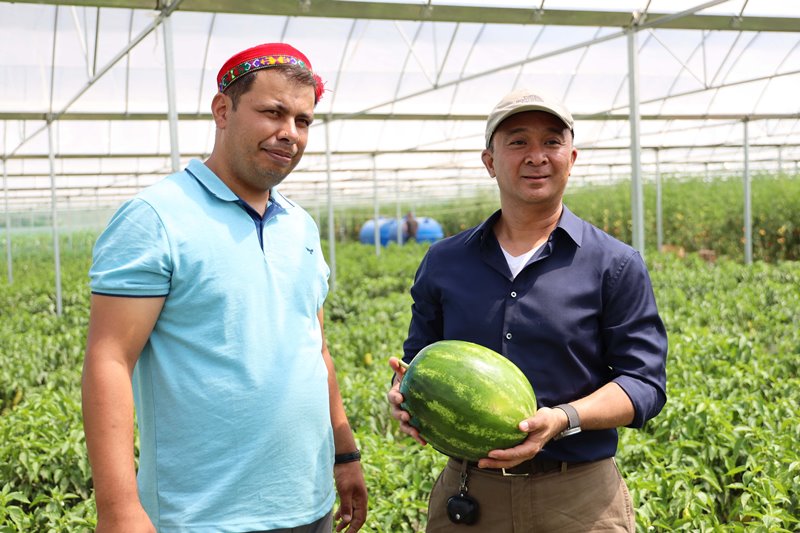
Cashless payment and credit systems are slowly becoming more important in Tajikistan – something driven by the worldwide success of U.S. credit cards and payment apps such as Visa, MasterCard, American Express, and GooglePay, which are now available here – something almost unheard of even ten years ago.
There is incredible potential and opportunity to build on this foundation and U.S. companies are ready. Many have taken the opportunity to become leaders in Tajikistan as we build stronger, deeper, and broader economic ties.
Khovar: As far as I know, the US Presidential Administration has sent a request to Congress to allocate funds for an initiative to support migrants. What is this initiative and how realistic is it?
Manuel P. Micaller: One of my goals as ambassador is to further ties between our countries by supporting legal and safe migration, and responsible travel in both directions. I hope that citizens of Tajikistan will take advantage of these opportunities as they arise, including exchange visits, tourism, and other visa opportunities such as the diversity visas program. The U.S. Embassy has noted at times there are fraudulent companies advertising U.S. visa schemes that do not exist. We strongly condemn the actions of smugglers and caution Tajikistanis not to fall prey to the lies of criminal smugglers who regard persons as commodities. We hope readers will not be deceived by these schemes, and the embassy attempts to point these out as fraudulent when they appear. We urge citizens of Tajikistan to abide by U.S. law and use safe and regular pathways to travel to the United States, and note that all U.S. government websites have a “dot gov” (.gov) in the address, so this is a clue for readers whether an offer is legitimate.
Khovar: What goals and objectives do you set for yourself for the remainder of your service in Tajikistan?
Manuel P. Micaller: I want to work with the government and private sector to help attract more U.S. businesses and enable those who have already committed to Tajikistan to thrive and grow. I previously mentioned my goals to increase opportunities for English language learning and for educational and professional exchanges, both of which build long-term understanding between our peoples. As Tajikistan looks to maintain economic sovereignty, I will look for opportunities to support entrepreneurship and the establishment of businesses that embrace newer technologies. I will continue to support platforms that can increase regional cooperation and trade, and increased ties between the United States and Tajikistan. Finally, I always learn from the people with whom I speak with when I travel, and I look forward to seeing more of this beautiful country, visiting businesses, civil society organizations, agricultural and power projects, schools and American Spaces, and hearing more stories from the people of Tajikistan.
Khovar: Since our interview is taking place on the eve of Independence Day of the Republic of Tajikistan, could you tell us how you assess the socio-economic development of Tajikistan, especially over the past five years?
Manuel P. Micaller: The eve of Independence Day should be a time of reflection and celebration for the nation, and it provides a valuable opportunity to assess progress and the road ahead.
Over the past five years, Tajikistan has demonstrated resilience and determination in its socio-economic development efforts. The government’s focus on bolstering infrastructure, advancing education, and enhancing healthcare demonstrates a commitment to improving the standard of living for all people living in Tajikistan. The diversification of its economy has been a crucial strategy to reduce dependence on a single sector, thereby fostering stability.
Efforts to improve access to education and healthcare have also been commendable. Expanding educational opportunities, particularly for women and girls, is essential for building a skilled workforce that can contribute to the country’s development. The United States continues to support these efforts through USAID development and training programs, and educational programs for youth through our American Spaces, such as the iCode for Girls program. The United States remains committed to supporting Tajikistan in its development journey. Our partnership has contributed to significant improvements in the quality of life for the people of Tajikistan, and we look forward to seeing continued progress over the next five years and beyond.
Khovar: Your wishes to Tajikistan and the Tajik people
Manuel P. Micaller: I wish the people of Tajikistan peace and prosperity.
This year marks the 33rd anniversary of the Republic of Tajikistan’s Independence. I am proud of our bilateral cooperation with Tajikistan, in support of your sovereignty, economy, education, and healthcare. We continue to work together to advance opportunities for youth and to encourage respect for human rights through transparent governance. We look forward to exploring ways to expand regional economic prosperity, and continuing our partnership to promote a democratic, stable, and secure Tajikistan.
On behalf of the people of the United States, I wish the Republic and the people of Tajikistan continued prosperity and Happy Independence Day!











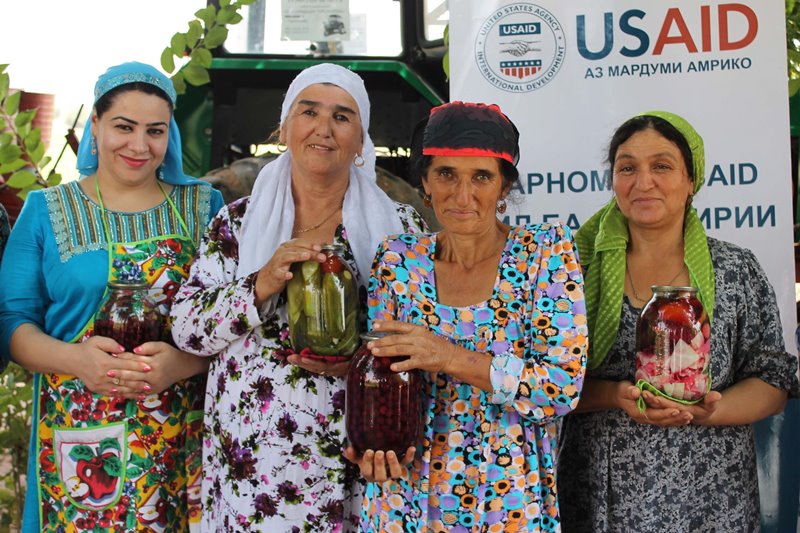
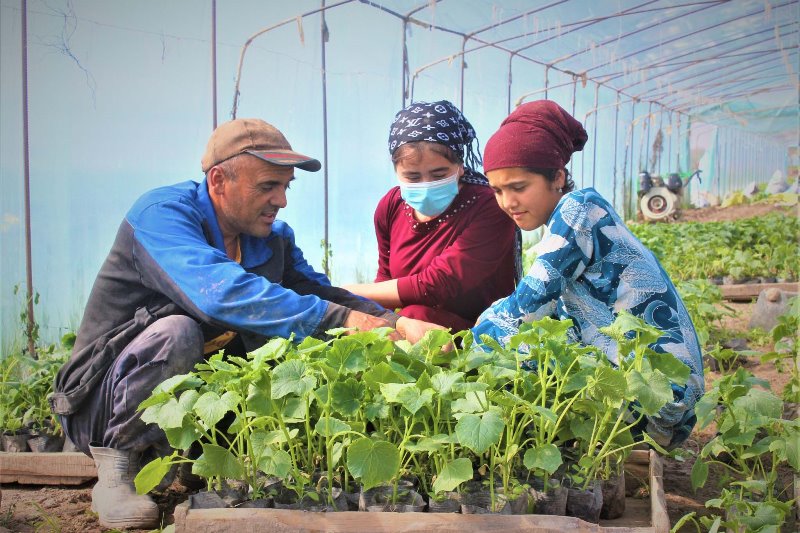
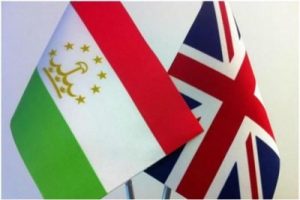 Political Consultations Between the Republic of Tajikistan and the United Kingdom Held in London
Political Consultations Between the Republic of Tajikistan and the United Kingdom Held in London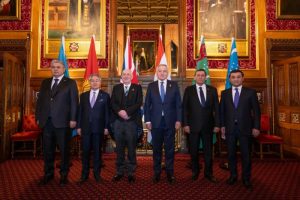 Tajik Foreign Minister Participates in Central Asia–UK Parliamentary Dialogue
Tajik Foreign Minister Participates in Central Asia–UK Parliamentary Dialogue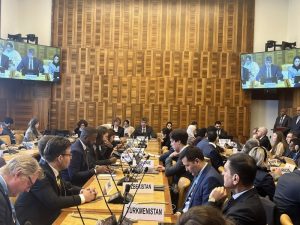 Tajikistan, Qatar host UN side event on digital development and human rights
Tajikistan, Qatar host UN side event on digital development and human rights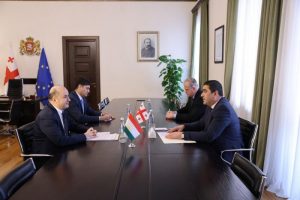 Tajik Ambassador, Georgian Speaker Discuss Expanding Interparliamentary Cooperation
Tajik Ambassador, Georgian Speaker Discuss Expanding Interparliamentary Cooperation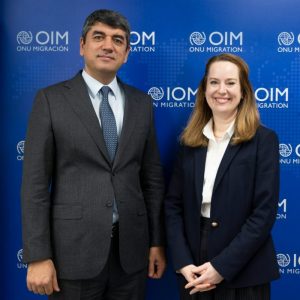 Tajikistan and IOM Discuss Migration Cooperation
Tajikistan and IOM Discuss Migration Cooperation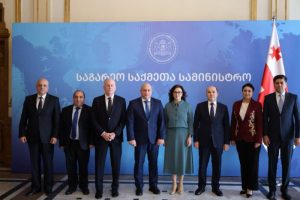 Tajikistan and Georgia Hold Deputy Minister-Level Political Consultations in Tbilisi
Tajikistan and Georgia Hold Deputy Minister-Level Political Consultations in Tbilisi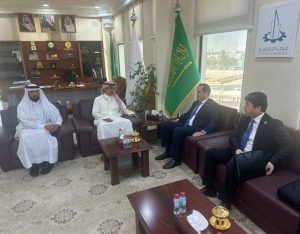 Tajikistan and Saudi Arabia’s Qassim Region Move to Deepen Private Sector Ties
Tajikistan and Saudi Arabia’s Qassim Region Move to Deepen Private Sector Ties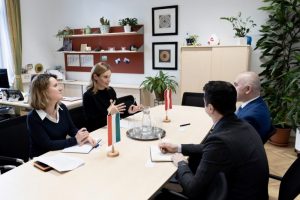 Tajikistan and Austria Review Cooperation Plan for 2026
Tajikistan and Austria Review Cooperation Plan for 2026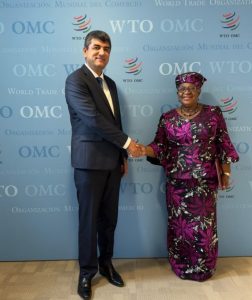 Tajikistan Discusses WTO Commitments and Ministerial Conference Preparations
Tajikistan Discusses WTO Commitments and Ministerial Conference Preparations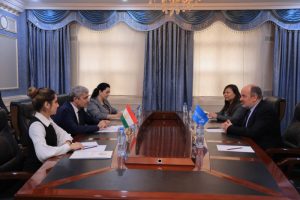 Tajikistan, UNICEF Review Joint Programs on Child and Youth Development
Tajikistan, UNICEF Review Joint Programs on Child and Youth Development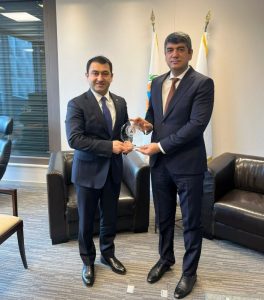 Tajikistan–ICDO Cooperation Discussed
Tajikistan–ICDO Cooperation Discussed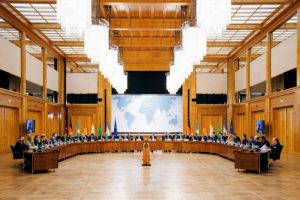 Tajikistan Highlights Investment Potential at C5+1 Economic Roundtable in Berlin
Tajikistan Highlights Investment Potential at C5+1 Economic Roundtable in Berlin














